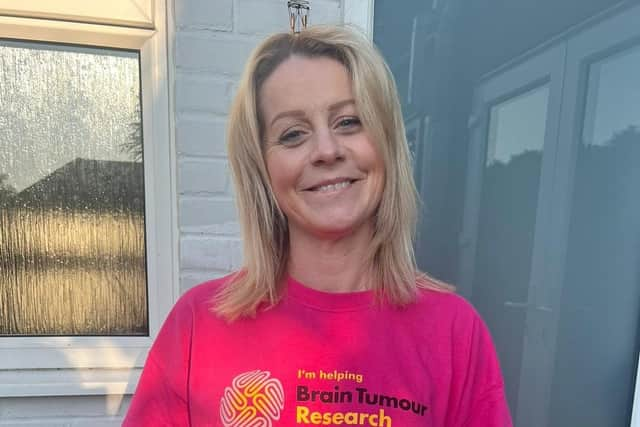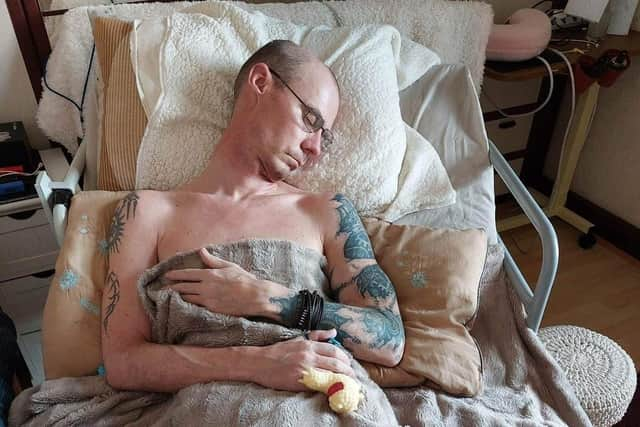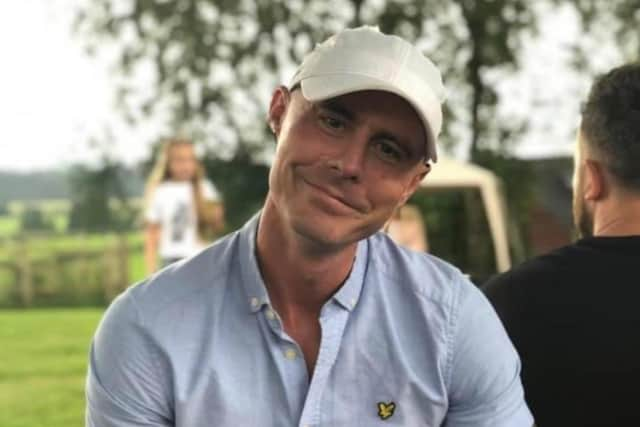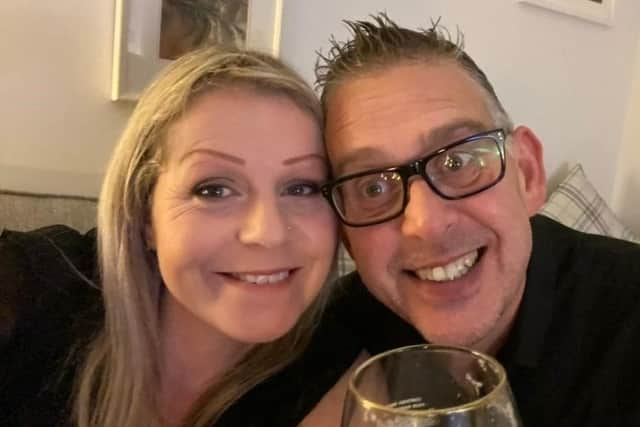Suffolk widow to skydive with husband’s ashes in honour of Lancashire brother who has terminal brain tumour
and live on Freeview channel 276
A widow is preparing to skydive with her husband’s ashes in honour of her Lancashire brother who has been diagnosed with a terminal brain tumour.
Lindsay Charlson, of Hessett, Suffolk, is taking part in Brain Tumour Research’sJump for Hope at Beccles Airfield on Saturday (10 June).
Advertisement
Hide AdAdvertisement
Hide AdThe 47-year-old will complete a tandem skydive from 10,000ft while carrying some of her late husband, Edward’s, ashes.
Edward died suddenly last year, aged 53, after sustaining a serious head injury during a fall.


Lindsay’s motivation comes from her younger brother, Jamie Marsden, who is receiving palliative care for a terminal brain tumour.
She said: “Skydiving has been on my bucket list for years, so I’m both excited and nervous.
Advertisement
Hide AdAdvertisement
Hide Ad“I used to talk to Edward about it and know he would be all for me doing it. He wouldn’t have wanted to do one himself, but I’ve decided to take a little bit of him up with me anyway.
“He loved my brother to bits and I know he’s watching over us all right now. I’ll be thinking of him and my brother when I’m up there.”


Jamie, a former support worker in a NHS medium secure unit and retained firefighter from Great Harwood, was diagnosed with a grade 2 oligoastrocytoma after suffering a seizure in 2003.
Since his diagnosis, he has undergone a craniotomy, two debulking surgeries, internal radiotherapy treatment, high-dose radiotherapy and chemotherapy, but his tumour has continued to grow.
Advertisement
Hide AdAdvertisement
Hide AdThe father-of-three has now been told his condition is terminal and there are no further treatment options available for him.


He is just 42 years old.
Lindsay, a packing operative at Deben UK in Woolpit, said: “Since being told his tumour is terminal, Jamie has declined so quickly.
“He’s very stubborn and didn’t want to give into it, but he hasn’t had a choice.
“He hasn’t been able to walk properly or speak for months and is now receiving palliative care at home, with my parents doing everything they can to look after him.
Advertisement
Hide AdAdvertisement
Hide Ad

“They care for him so attentively 24 hours a day seven days a week, washing and changing him twice daily as he has lost control of everything but the use of his left arm.
“I’m just praying he’s still with us when I do my jump on Saturday because I’ve arranged to have video and photos taken to show him.”
Charlie Allsebrook, community development manager for Brain Tumour Research, said Jamie’s story is a “stark reminder of the indiscriminate nature of brain tumours.”
He added: “We’re determined to change this but it’s only by working together we will be able to improve treatment options for patients and, ultimately, find a cure.
Advertisement
Hide AdAdvertisement
Hide Ad“We’re incredibly grateful to Lindsay for taking on this challenge for us and hope she has an enjoyable jump on Saturday.”
Brain Tumour Research funds sustainable research at dedicated centres in the UK.
It also campaigns for the Government and larger cancer charities to invest more in research into brain tumours in order to speed up new treatments for patients and, ultimately, to find a cure.
The charity is the driving force behind the call for a national annual spend of £35 million in order to improve survival rates and patient outcomes in line with other cancers such as breast cancer and leukaemia.